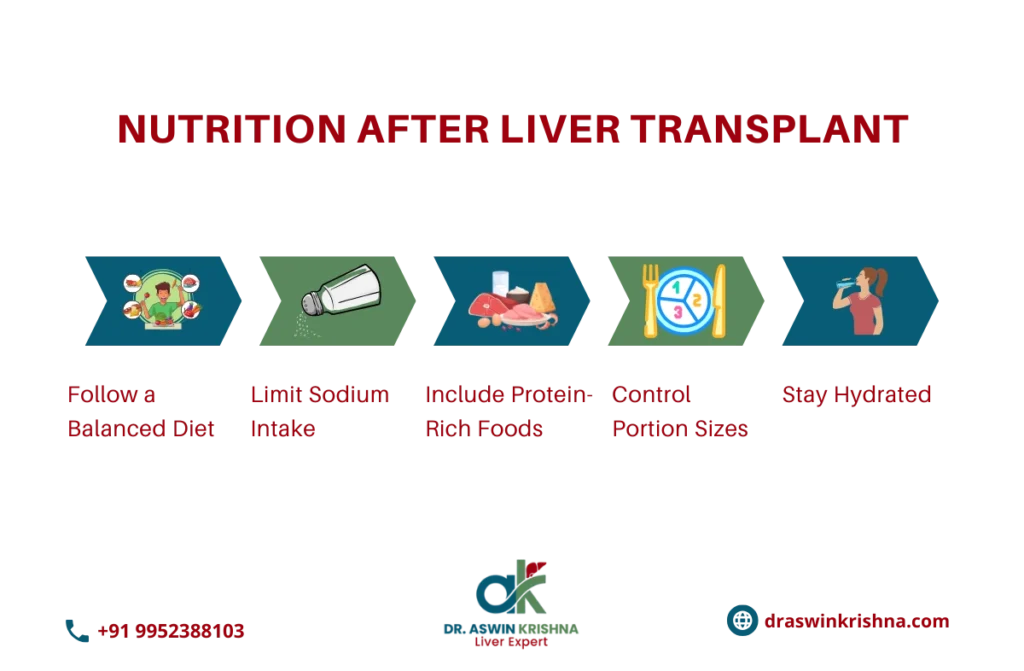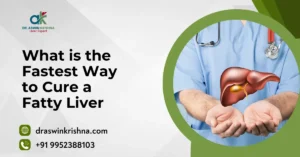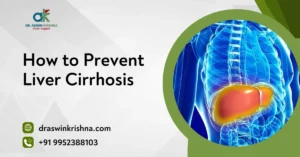Life after liver transplant is a journey of recovery, adjustment, and new lifestyle changes. Once you’ve undergone the transplant process, it’s normal to have many questions about your future health and well-being. You might wonder how long it will take before you feel like yourself again, or how to take care of your new liver. One of the most important aspects of life after liver transplant is maintaining good nutrition after transplant, which helps your body heal and thrive.
Along with proper nutrition, staying active, following prescribed medications, and keeping up with medical check-ups will all contribute to your success in this new chapter. While you begin to feel better over time, knowing how to lower your risk of organ rejection and recognizing the signs of possible complications is crucial. This guide will answer some of the most common questions about life after liver transplant, including tips on recovery, self-care, and staying healthy for the long term.
How to Prepare for Life and Maintain Good Health After a Transplant
Life after liver transplant involves adapting to physical, emotional, and lifestyle changes that ensure long-term recovery. Patients should expect frequent follow-ups, strict medication schedules, and dietary adjustments. The maximum age for liver transplant varies, but overall health and organ function matter more than age alone. Mental problems after liver transplant, such as anxiety or depression, may occur, requiring psychological support. Staying active, managing stress, and maintaining discipline are key for healthy recovery.

How Long Until I Feel Normal After My Transplant?
After your liver transplant, it’s natural to wonder how long it will take before you feel like your old self again. Recovery varies from person to person, but here are some key points to consider:
- Initial recovery: The first few weeks to months will involve adjusting to your new liver and the transplant process. You may still feel tired or weak during this time.
- Gradual improvement: Over the next 6 months to a year, most patients experience a gradual improvement in energy and strength.
- Full recovery: Depending on your overall health and how well you follow instructions, it may take a year or more to feel completely normal.
- Physical therapy: Engaging in physical therapy and rehabilitation can speed up the recovery process.
Stay positive, and don’t rush things; life after liver transplant involves patience and careful attention to your recovery.
How Can I Lower My Risk of Organ Rejection After a Liver Transplant?
- Strictly following the prescribed immunosuppressive medications is the most important step in preventing rejection. Skipping or altering doses increases the chances of complications, making adherence vital for survival.
- Regular medical checkups and blood tests help detect early warning signs of rejection. Life expectancy after liver transplant cirrhosis can be significantly improved by proactive monitoring and timely medical interventions.
- Healthy habits such as avoiding alcohol, quitting smoking, and maintaining a balanced diet strengthen the immune system. Mental problems after liver transplant, like anxiety, may hinder consistency, so counseling and family support play a crucial role in maintaining adherence.
How to Prevent Organ Rejection Post-Liver Transplant?
After your liver transplant, it’s important to minimize the risk of organ rejection. Here are some steps to help protect your new liver:
- Follow your medication plan: Take medication after surgery as prescribed to prevent rejection.
- Regular check-ups: Keep up with all scheduled appointments for tests and exams.
- Monitor signs: Watch for any changes in your health and report them to your doctor immediately.
- Healthy lifestyle: Eat a balanced diet and exercise regularly to boost your immune system.
By paying attention to your health and staying in touch with your doctor, you can help prevent complications. This approach is essential for ensuring a smooth life after liver transplant.
How Can I Take Care of Myself and My New Liver?
Taking care of your new liver involves a combination of good habits and lifestyle choices. Here’s how to stay on track:
- Follow your diet: After a transplant, nutrition after transplant is crucial. Focus on healthy foods like fruits, vegetables, lean proteins, and whole grains.
- Exercise regularly: Once your doctor gives you the go-ahead, light exercises like walking can help maintain your strength and overall health.
- Stay hydrated: Drink plenty of water to keep your body well-hydrated.
- Medication adherence: Take all prescribed medication after surgery to avoid complications and prevent rejection.
By maintaining a healthy routine and following your doctor’s advice, you’ll be well on your way to thriving in your new life after liver transplant.
Signs of Possible Organ Rejection
Recognizing early signs of organ rejection is important for your health. Be on the lookout for these warning signs:
- Fatigue: Feeling extremely tired can be a sign of rejection.
- Jaundice: Yellowing of the skin or eyes.
- Abdominal pain: Discomfort in the area of your transplant.
- Fever: An elevated temperature can indicate infection or rejection.
- Changes in liver function tests: Your doctor will monitor these during check-ups.
If you experience any of these symptoms, contact your healthcare provider right away. Early detection can make a huge difference in life after liver transplant and prevent more serious complications.
What is the Recuperation Period?
- The recuperation period after a liver transplant usually lasts several months, with initial recovery requiring hospital monitoring for about 2–3 weeks. During this stage, doctors closely watch for infections, complications, or organ rejection.
- Full recovery may extend to 6–12 months, depending on factors such as age, overall health, and underlying conditions. Life expectancy after liver transplant by age often improves with timely rehabilitation and consistent medical follow-up.
- The maximum age for liver transplant may influence recovery speed, as older patients may require longer healing times. However, disciplined adherence to lifestyle modifications significantly enhances long-term outcomes.
When to Call the Doctor if Unwell?
It’s important to stay in contact with your doctor during the recovery process. You should call your healthcare provider if you experience any of the following:
- Signs of infection: Increased redness, swelling, or warmth around your incision site.
- Fever: A temperature over 101°F (38°C) that doesn’t go away.
- Severe fatigue: If you feel more tired than usual and it’s not improving with rest.
- Abdominal changes: Unexplained pain or swelling in the abdominal area.
- Skin changes: Yellowing of the skin or eyes, which could signal liver problems.
Contact your healthcare provider as soon as possible to discuss your symptoms. The sooner issues are addressed, the better your chances of a smooth recovery. This is an important part of adjusting to life after liver transplant.
What Complications Can Occur Following a Transplant?
- Life expectancy after liver transplant cirrhosis often depends on lifestyle discipline and controlling comorbidities like diabetes or hypertension. Adopting preventive care reduces the risk of major problems after liver transplant and enhances survival rates.
- Problems after liver transplant include infections, bile duct complications, or blood clots. These issues are most common in the initial recovery period but can be managed effectively with medical supervision.
- Long-term complications may involve chronic rejection or recurrence of underlying liver disease. Life expectancy after liver transplant by age varies depending on how well these complications are prevented and managed.
- Mental problems after liver transplant, such as mood swings, memory issues, or depression, may develop due to medications or emotional stress. Addressing these concerns early improves overall well-being and supports long-term recovery.
Self-care at Home
After your liver transplant, taking care of yourself at home is essential for recovery. Here are some tips for self-care:
- Medication: Take all medication after surgery as prescribed to prevent organ rejection and control your immune system.
- Diet: Maintain a healthy, balanced diet. Nutrition after transplant is crucial to ensure your liver heals properly.
- Physical activity: Slowly return to physical activity, but consult with your doctor before starting any exercise regimen.
- Rest: Make sure to get plenty of sleep and avoid overexerting yourself.
By following these self-care steps, you can improve your chances of a smooth recovery and enjoy life after liver transplant.
What Happens Immediately After the Liver Transplant Surgery?
The first few days post-surgery are critical. Once the transplant is complete:
- ICU Monitoring: Patients are typically moved to the Intensive Care Unit (ICU) for close observation. Medical professionals monitor vital signs, organ function, and signs of infection or rejection.
- Pain Management: Pain is managed through medications, ensuring comfort while minimizing side effects.
- Initial Recovery: Tubes and drains are placed to help with fluid removal, and these are usually removed gradually as healing progresses.
- Rehabilitation Begins: Physiotherapy starts early to improve mobility and reduce complications such as blood clots.
Self-Care at Home: Road to Recovery After Liver Transplantation
Once discharged, patients must commit to an intensive self-care routine to ensure a smooth recovery. Here’s what to focus on:
- Medication Adherence: Anti-rejection medications (immunosuppressants) are essential to prevent organ rejection.
- Regular Checkups: Frequent visits to the transplant team help monitor liver function and adjust medications.
- Hygiene and Infection Prevention: Proper hand hygiene, avoiding sick contacts, and maintaining a clean environment are critical to prevent infections.
- Physical Activity: Light exercises, like walking, are encouraged to regain strength, but heavy lifting should be avoided initially.
Diet and Nutrition
Maintaining a balanced diet plays a pivotal role in promoting a healthy life after liver transplant. A nutritionist usually provides a personalized meal plan, but general guidelines include:
- High-Protein Intake: Helps in tissue repair and muscle strength.
- Low-Sodium Diet: Reduces fluid retention and controls blood pressure.
- Avoid Raw Foods: To minimize the risk of infections, especially from raw seafood, eggs, or unpasteurized dairy.
- Hydration: Staying well-hydrated aids digestion and overall health.
Common Problems After Liver Transplant
While many patients enjoy an improved quality of problems after liver transplant, potential complications can occur:
- Organ Rejection: Signs include fatigue, jaundice, and fever. Early detection is crucial for management.
- Infections: Due to immunosuppressive medications, patients are at increased risk of bacterial, viral, and fungal infections.
- Medication Side Effects: These may include high blood pressure, diabetes, or kidney issues.
Conclusion
Life after liver transplant requires a commitment to a new routine of medication, diet, and self-care. While the process of recovery can take time, most people gradually regain their strength and energy. The keys to success are following your doctor’s instructions, taking care of your new liver, and being aware of potential complications. With the right mindset and habits, you can lead a fulfilling life after transplant. Always stay in close communication with your healthcare team, especially if you notice any signs of complications. Your liver transplant is just the beginning of a new chapter, and with the right care, you can continue to live a healthy and active life.



